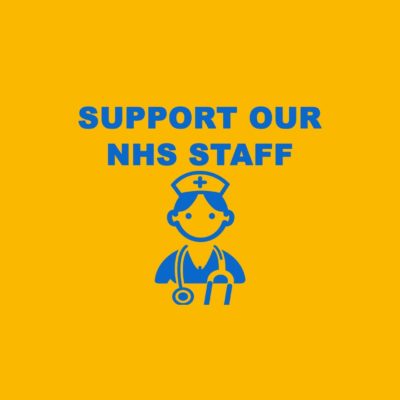
This article was written by Dr Minh Alexander, NHS whistleblower and former consultant psychiatrist.
Whistleblowing is a vital, everyday activity that is part of good governance in all sectors. It is invaluable in safety critical areas such as health and social care. Numerous whistleblowers have helped to highlight unsafe care, such as at Winterbourne View. Conversely, the suppression of whistleblowers has been followed by disasters such as the Gosport deaths.
The EU estimates 7% of employees will need protection at some point in their careers.Yet UK whistleblowing law, the Public Interest Disclosure Act (PIDA), is weak and enables cover ups. In the NHS, thousands of concerns are raised daily that legally qualify as whistleblowing. It is often without incident, especially if staff do not press their concerns.
But whistleblowing can be politically significant, and may highlight unmet need and policy failure. Where whistleblowing challenges power, whether local managers, the central NHS machinery or the government itself, it can be highly risky for staff.
When raising concerns, staff may have no idea of the risk they may face. In sensitive cases the corporate response often starts covertly, with lawyers advising behind the scenes at an early stage. There is usually deliberate provocation by organisations to manufacture conflict. This wears whistleblowers down. It is also a strategy to make cases complex and expensive to litigate or to create a contractual argument of breakdown of trust and confidence. There is also surveillance, including in some cases snooping on whistleblowers’ email, computer files or even confidential whistleblowing case files held by Freedom To Speak Up guardians. One NHS trust recently tried to hunt down a whistleblower using fingerprints.
The greatest risk to NHS staff occurs when their disclosures clash with a government’s political interests. We have seen this during the COVID-19 pandemic in relation to PPE. It has also been apparent through the harsh years of austerity and defunding. The NHS was promised safe staffing levels after Mid Staffs but the government reneged. Thus the institutional response to some frontline concerns about safe staffing is suppression and bullying.
The government’s toothless Freedom To Speak Up project started five years ago with the aim of changing culture. There is no evidence that it stopped the most serious reprisal. Freedom To Speak Up Guardians may themselves be victimised. Some have even lost their jobs.
Very weak UK whistleblowing law allows such abuses. The law does not compel anyone to investigate whistleblowing concerns, correct wrongdoing, protect whistleblowers nor deter reprisal by imposing penalties on those who harm and silence them. PIDA merely allows whistleblowers to litigate for inadequate compensation after serious harm, when they have been made unemployable. Employers have little to fear from litigation under PIDA. Only 3% of cases succeed at hearing. The lowest paid employees cannot even afford litigation. Litigation is wasteful and harmful. The process becomes a weapon against whistleblowers, with added stigma, attrition, vexatious appeals by employers, costs threats and employer smears.
PIDA mirrors institutional tactics of deflecting from whistleblowers’ concerns. PIDA sits in employment law, and addresses only secondary employment disputes, not the safe resolution of disclosures. Regulators may collude, harm whistleblowers, cover up and protect abusers, but PIDA does not recognise nor address misconduct by parties other than employers.
PIDA was weakened during drafting to placate corporate interests. The legal hurdles are too high. Because it is hard to win a whistleblowing claim, many whistleblowers are forced to settle and accept a gag. Indeed, revised NHS guidance drawn up with input from the National Freedom To Speak Up Guardian includes the continuing use of "super gags" to hide even the existence of settlements.
Whistleblowing law that allows silence is not fit for purpose.
PIDA falls far short of the protection standards set by the new EU Whistleblowing Directive, and Brexit may leave UK whistleblowers much worse off than their European counterparts.
A new whistleblowing bill
There is growing consensus that UK whistleblowing law must be reformed. Dr Philippa Whitford MP has placed a new whistleblowing bill before parliament, the Public Interest Disclosure (Protection) Bill. This shows how the law could be improved. The bill is free standing law, not constrained to only employment matters. It prioritises public protection and proper handling of disclosures. It applies to not just employers, but other parties such as regulators. The bill seeks to prevent wasteful, destructive litigation. It provides for an independent whistleblowing body to enforce early intervention, other good whistleblowing governance, and to order redress for whistleblowers without the risk and trauma of litigation. Unlike PIDA, remedy ordered by such a body may include non-financial as well as financial redress. For instance, removal of unfair performance appraisals or disciplinary records. The bill also creates offences of harming whistleblowers and failing to address their concerns.
Philippa Whitford’s new bill will get its second hearing on 25 September 2020.
Whistleblowers have also set up a Westminster petition calling on the government to replace current whistleblowing law:
Petition: Replace UK whistleblowing law, and protect whistleblowers and the public
We would be extremely grateful if people could sign and share this petition link, to raise awareness of the risk to the public and to place pressure on the government to make improvements. Please also write to your MPs if you can. A template letter is available here.







Leave a Reply